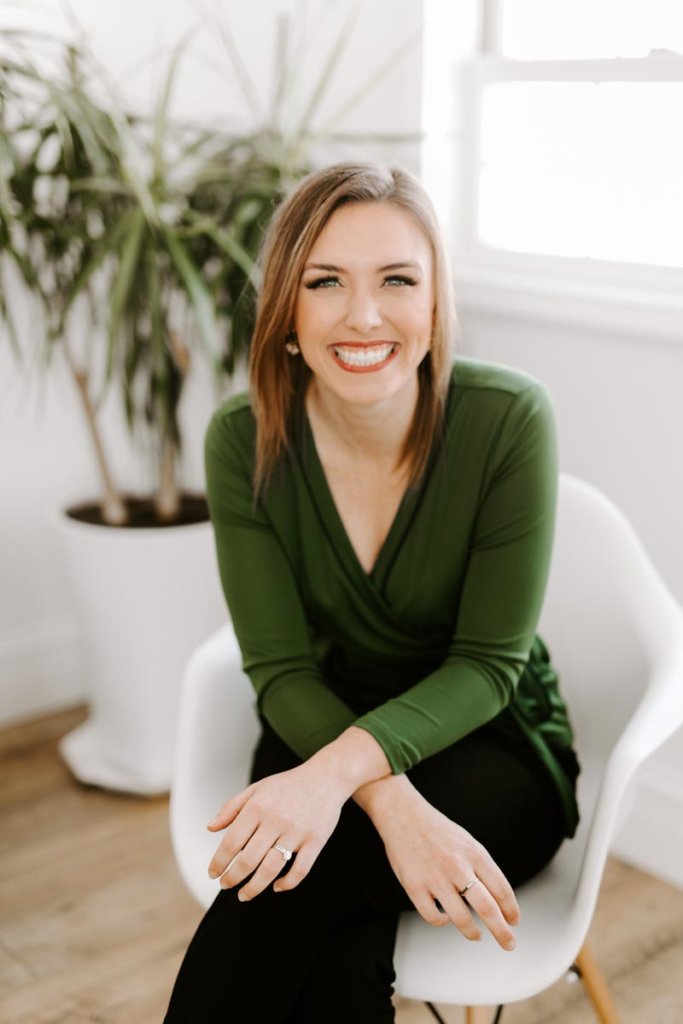Women in Wellness: Dr. Cassie Wilder
Show notes:
Britt Reuter: Hi to everyone who is joining us. This is another Conversations with Women in Wellness where I get to introduce all of you to a female professional with a heart to serve others and talk a little bit about what it is that they do, who they support, and what resources they may have available for you to explore.
I’m Britt Reuter and I’m a Functional Medicine Nutritionist serving women experiencing gut issues, hormone imbalances, and autoimmunity. I run an online virtual clinic from my home in the Boston area. If you want to learn more about me and what I do, you can visit my website www.brittreuter.com or find me on Facebook or Instagram: @nutritionbritt
Today, my guest is my friend and colleague, Dr. Cassie Wilder. Dr. Wilder is a Functional Medicine Doctor and founder of Minneapolis Integrative Medicine Center located in Minneapolis, Minnesota. She is a primary care physician, but has a special passion for helping women to optimize their hormones, their thyroid, and adrenal health as well as correct digestive concerns.
Thanks for joining me here today Dr. Wilder!
Dr. Cassie Wilder: Hey, thank you for having me!
Britt Reuter: Yeah, absolutely! So, I want to start out by asking a burning question that I have. What does a day in the life of Dr. Wilder look like as far as your health routine goes?
What Does A Day In The Life Of Dr. Wilder Look Like?
Dr. Cassie Wilder: That’s a funny one and it’s one that I kind of get often. I really still think that my perfect health routine, or a healthy routine in general, is always changing. On a typical day, I guess I’m a morning person. I love the mornings. I love waking up, getting a cup of coffee, taking my supplements. Right now, I’m taking a thyroid support, an adrenal glandular product, an adrenal herbal product, so I’m double hitting right there! I’m high on my stress control. I’m also taking testosterone support, because I did some blood labs on myself and found that I was pretty low in testosterone, which plays an integral part in your motivation. That’s something I noticed that I was kind of lacking, a little bit of burnout and lack of motivation to do tasks that I really didn’t want to do. Just supporting my testosterone there. I typically head straight to work, and then just jump into it. So really, just jumping into work is really energizing for me.
One thing that I wanted to comment here, when I get asked this question everyone’s like, “Well, how many times a week do you exercise? Are you going every day doing 30 minutes or 60 minutes?”. And, that’s not what I do. I only exercise at a group fitness place one time per week. And honestly, it’s something that I’ve internally struggled with for a really long time, because in April of 2018, I had an unlimited membership to one of the really local trendy gyms and I loved it, and it was great. But I would wake up and be like, “Oh, my gosh! I have such a busy day! I have so many things that have to get done today, but now I have to spend almost an hour and a half getting to the gym, getting home from the gym, showering, getting ready for my busy day.” It was taking up a ton of my time, and I was getting massive anxiety about going to the gym, which is counterproductive when it comes to thinking about exercise. So, I actually quit my unlimited membership. I signed up for a token-based or points-based system that you can get online. I only go one time per week and I change it up. So that’s kind of like the most standout thing about my health routine is that I find it ok to only go to the gym once per week, and then I get in my 10,000 steps in my walk. So that’s my exercise.
Britt Reuter: Yeah, that’s awesome! It’s kind of like having that awareness of when self-care becomes the opposite of self-care.
I’m really curious how it is that you came to discover Naturopathic and Functional Medicine. You’re a doctor so we know that you’re super smart! Did it ever cross your mind to pursue a career in western medicine as say an MD, or were you always set on earning your doctorate in Naturopathy and pursuing Functional Medicine?
Did It Ever Cross Your Mind To Pursue A Career In Western Medicine?
Dr. Cassie Wilder: That’s another great question. You just getting all the good ones right up front! I really discovered Functional Medicine after my pedestal for the modern medicine system really fell and shattered. I did pre-med and I shadowed Internal Medicine, Gastroenterology, and Family Medicine. I just remembered walking through the halls of the hospital as we were doing rounds and thinking like, “Oh, man! We can see the next one. We can help these people and really get to solve the problems, and cure their diseases, and get them home and happy and healthy.” What I found was that we really didn’t dig into what were they eating, what was the root cause, like really asking them their story. We basically go in, ask them, “How are you feeling? Oh, you’re feeling this way? Okay, let’s run these tests or do this procedure.” We did a lot of colonoscopies. Then it was really at the end of the day, “There’s nothing wrong with you, and you can go home”. The patients were still saying, “Oh, it’s still abdominal pain. Oh, I’m still not pooping every day.” I saw problems, and I remember talking to the GI and I said to him, “Can we ask her what she’s eating at home? Like, is she getting enough fiber? What are her medications causing this?” He looked at me and he said, “That’s not your job”. I was a little confused at first. I was like, “That’s not our job to ask our patient what they’re eating, how they’re exercising? That’s not our job?” I don’t get it. “We’re doctors”, he said, “That’s the dietitian’s job.” So, I’m starting to think, “Okay, so we’re piecing out all these aspects of patient care. But we’re never going ask the dietitian, or weigh in with the dietitian on what they should be eating or what they are eating.” I guess that’s when my pedestal really kind of shattered. I won’t ever get to talk about what people are eating, I won’t get to talk about them exercising, I won’t get to introduce anything natural (like herbs or supplements or nutrients). And that was something that I was really interested in, and I felt was really integral to patient care.
I withdrew my application to medical school and all my interviews. My mom was so livid, and so was my boyfriend at the time. They were both really upset with me, because medicine is on this pedestal. Doctors are on this pedestal, they are the mecca of all medicine. Western medicine is the mecca. What I found (when I was ingrained in that world) is that they’re not really the mecca, they don’t have all the answers. If you need to look into your colon and find out if you have colon cancer, that’s a great place to go. Don’t go to me to look inside your colon. But when it comes to like gas, bloating, abdominal pain, constipation, diarrhea, all these other functional disorders, they were providing no answers. Those are kind of the answers that I was interested in most treating. I actually went to a biomedical nutrition conference right outside of school and it was taught by a Naturopathic doctor and I had no idea who she was at the time. She really talked about biochemistry and how introduction of certain herbs would push certain pathways and introduction of certain nutrients would push these other pathways and this is how you could really get to the nitty gritty of prescribing therapeutic nutrition and therapeutic supplements to push biochemistry. You could see my eyes, they lit up! I was so excited and energized and that’s just what I wanted to do. The universe puts you in a place where you really need to be when you need that particular thing in your life, and I sat next to her on the shuttle back to the airport that next day. I was just like, “Hey, I was so enthralled with what you were saying. Can you tell me who you are, what you do? I need to know more!” She filled me in that entire time. I think that conference was in October. I applied, interviewed (I had already had the pre-recs and everything), and got in by December 1 and moved to Arizona January 1st and started. It just sucked me in I guess. I spent four years in Naturopathic medical school and really got to learn two years of nutrition, two years herbs, all of the same conventional treatments. So, as we’re learning about high blood pressure, we get to learn JNC 8 which is the medication algorithm for how to treat someone with high blood pressure. However, at the same time we get to learn, “What are some dietary strategies? What are some herbal strategies? Oh, can’t take that are because it interacts with this medication.” Really, “How can we personalize someone’s hypertension protocol from both a short-term management with drugs, but then a long-term solution with lifestyle, stress modification, herbs, and supplements?” That to me is what medicine should be. I feel very fortunate that I found Functional Medicine, that I found Naturopathic medicine so early, because a lot of my classmates were significantly older than I am coming from second, third careers, some of them MDs, some of them chiropractors, and really not learning about this piece of medicine and until later. I feel really fortunate to have found it so early.
Britt Reuter: Yeah, that’s so interesting that you experienced the disenfranchisement so early. Being able to do that clinical experience, and really picturing yourself assuming that role for a long time, having a long career in Western medicine and imagining what that lack of fulfillment is like. It’s a little bit disjointed, like you’re saying, where everybody has their specialty, nobody’s really communicating about the holistic care of the patient. It’s like, “stay in your lane”. It really robs the patients of the results that they’re hoping to achieve.
Dr. Cassie Wilder: Yeah, no, it really does. You can see that by the patients that walk in my door. Now I’m requesting records from 10 different physicians, 10 different clinics who have run just myriads of tests, and they’re still having the same issues they’ve been having for years. You can see the outcome of the disenfranchisement is really through patients.
Britt Reuter: Yeah. Wow. Oh, that’s such a powerful story. That’s so good. Thanks for sharing that.
I have a little bit of a tough question to throw at you. If you could tell all women (because women is the key demographic that I serve, so I know that we have a lot of women watching this who want to know this from you), if you could tell all women one way to improve their wellness today, what would it be?
What’s One Way All Women Can Improve Their Wellness Today?
Dr. Cassie Wilder: I feel like the standard thing that I should say is some sort of supplement recommendation. However, natural medicine doesn’t work overnight. I think that starting immediately, starting today, something that could really help people is to start saying ‘no’. I found through my patients (I have a lot of women in my practice) that women are givers. Its in their nature to really overcommit, overwork, and really wear this exhaustion and overwork as a badge of honor. The only person that is getting bettered in a relationship where you’re giving out too much of yourself is the other person. Women have started wearing this badge of honor, and it’s killing our dreams. It’s killing our thyroid function. It’s making us tired, it’s making us gain weight, and then we start to not recognize ourselves, both on the inside and the outside. If it’s not a hell yes, then it’s a hell no. That’s one thing that I started implementing in both my life and clinical practice. It’s just really helping people parse through all the commitments that they have, and thinking which one’s light me up? Which ones energize me? Which ones drain me? What is required? Then, how do I manage all of these things and still be able to heal? I think that’s a huge one for women, because we like to give. That’s our nature. Our nature is to nurture and give, and I think the only person that it’s hurting is us.
Britt Reuter: Right? Yeah. It’s kind of like that saying, where you can’t pour from an empty cup. It’s adopting more of a long-term perspective. It’s acknowledging that it’s in your nature to nurture, like you’re saying, but then reserving something for yourself. I like how you said that, where you’re thinking about if it’s a hell yes, and if not then it has to be a no. Kind of putting your health first and asking “If I’m putting my health first, what do I really have time for after that?” That’s such a good way to frame it. I really like that awesome advice.
“Our nature is to nurture and give, and I think the only person that it’s hurting is us.”
Rapid Fire Questions
Alright, so now let’s do some rapid-fire questions. Okay, you ready? What is your favorite supplement?
Dr. Cassie Wilder: Adrenal glandular today.
Britt Reuter: Your favorite midday snack?
Dr. Cassie Wilder: Hard boiled eggs and hummus.
Britt Reuter: Favorite road trip food?
Dr. Cassie Wilder: My husband I really like getting these nitrate-free jerkies from Costco and those are favorite road trip treats.
Britt Reuter: Yum! What is your favorite remedy?
Dr. Cassie Wilder: My favorite remedy. I find sleep to be of the utmost importance and a lot of my patients (and something a lot of women) struggle with especially are ruminating thoughts. When that mind that just won’t quit. So, my favorite remedy for that is passionflower.
Britt Reuter: Do you like to have it in a mix with other herbs? Or do you look for just like a pure passionflower supplement?
Dr. Cassie Wilder: If I don’t really know them, then I typically just say a pure passionflower supplement. But if I get to know them and I hear about some of the other struggles that are going on in their life there are a lot of other cool herbs that can help. Passionflower will help calm the brain down but then there’s Avena. Avena is really helps tonify and nourish the adrenal stress response. There is Tilia. Tilia can help, it’s an anxiolytic as well as a sleep support. So, kind of just like listening to the person and talking to them and figuring out what their struggles are can really help customize a blended formula.
Britt Reuter: Custom is key, right?
Dr. Cassie Wilder: Yeah, that’s how you get the best results. Absolutely!
Britt Reuter: That’s so cool. I use passionflower sometimes too. I mean, ruminating thoughts. You hit it right on the head. I’m sure so many women are nodding their heads a lot with us, “Help us please!”. That was great!
Well, this has just been so much fun! In case anyone who’s watching this wants to connect with you, or learn more about what it is that you do, what is a good way for them to stay in touch?
Dr. Cassie Wilder: Yeah! I actually spend most of my time on Instagram, my handle @mplsintegrativemc. It’s kind of become my soapbox, or my platform for educational nuggets and inspiration. I tend to spend a lot of my time there and crafting captions that really educate people on there. There’s another way of approaching your health and approaching medicine. So, follow me there. Then we also post a weekly blog post to our bonus library at https://mplsimc.com/blog/. If you’d like to not have to remember to come check every week, and you’d like me to just send it to you every week, we have a newsletter list too. That helps people stay informed about what classes were teaching and how they can connect with us.
Britt Reuter: Awesome! Well, those are great resources.
So that’s it. Thanks again to Dr. Wilder for joining me today, and thanks for all of you for sharing with this conversation with us.
Dr. Cassie Wilder: That’s been my pleasure. Thanks!




